At the heart of Raeisi government’s foreign policy was ‘good neighborliness’
By Xavier Villar
One of the key doctrines that guided the foreign policy of President Ebrahim Raeisi's government was “good neighborliness”, forging closer ties with regional countries.
This doctrine should be understood with two other foreign policy stances of his administration: support for Palestine and the Axis of Resistance, which was a fundamental priority for him, and the "Look to the East" policy, a strategy that aimed at fostering political, economic, and strategic connections with countries in the Eastern Hemisphere, particularly in Asia, while reducing dependence on the West.
From the perspective of challenges and threats, Iran's neighborhood, comprising 25 countries, is considered one of the most conflict-ridden regions in the world.
For example, after the dissolution of the Soviet Union in 1991, numerous border changes occurred in this region, often sparking tension between these new countries, such as Azerbaijan and Armenia.
Similarly, the ‘Arab Spring’, which took place between 2010 and 2011, also impacted Iran's neighboring environment. Additionally, the Daesh terrorist group also emerged and developed in this region.
If we also consider civil wars, coups d'état, and intergovernmental disputes over resources and borders, it becomes understandable why this region is one of the most volatile regions in the world.
Due to this precarious regional situation, President Raeisi's government decided to base its foreign policy on the doctrine of “good neighborliness and convergence.”, which delivered results.
The purpose of this doctrine was to capitalize on opportunities and manage challenges in the neighboring environment, as well as to appropriately reorient the country's foreign policy.
First and foremost, the concept of neighborhood can be understood as the proximity between people living near each other.
In a more precise definition related to international relations, neighboring countries have two well-defined characteristics: first, they are located in a specific geographical space that is physically close and contiguous; and second, the changes and policies of one can influence the other and vice versa.
According to the above definition, geographical proximity or contiguity is the primary and fundamental characteristic that defines the concept of neighborhood.
Based on this, in international relations and international law, emphasis is placed on the principle of "good neighborliness" to regulate the relations between neighboring countries.
This principle is fundamental and globally accepted, and it is considered an essential component for peaceful relations between nation-states.
How President Raeisi revitalized Iran's international standing with pragmatic foreign policy#PeoplesPresident pic.twitter.com/yUAQWzGZS2
— Press TV 🔻 (@PressTV) May 26, 2024
The principle of good neighborliness requires refraining from any action that might disturb relations between two neighboring countries. In other words, it entails the development of normal and peaceful relations between adjacent nations, something deemed essential by the Iranian government.
However, in foreign policy and international relations, the concept of "neighborliness" is much more significant than merely being "neighbors."
While being neighbors is simply a geographical matter involving border issues, neighborliness marks the beginning of a political relationship based on trust and mutual respect.
It is for this reason that the government of President Raeisi officially placed the policy of "neighborhood and regional convergence" at the core of its pragmatic foreign policy.
“I extend my hand in a sign of friendship and fraternity to all countries in the region, especially to our neighbors, and warmly embrace them,” President Raeisi said during his inauguration ceremony, making explicitly clear what his foreign policy will be.
“The Islamic Republic of Iran regards neighboring countries and peoples as relatives, and its main priority in foreign policy is to improve relations with them, wishing for their dignity and progress."
During his state visit to Qatar, in a specialized meeting with Qatari and Iranian businessmen and economic actors, he emphasized that Iran’s foreign policy is “based on the development of neighborly relation” and that there are “many capacities in neighboring countries that need to be revitalized.”
President Reaisi's most important and comprehensive vision of neighborhood policy was presented during his speech at the seventy-eighth session of the United Nations General Assembly in 2023.
In this address, for the first time, Raisi emphasized "neighborhood" alongside "convergence," providing a clearer perspective on neighborhood policy and its frameworks:
“At a time when some powers are leading the world towards more wars, the Islamic Republic of Iran has raised the policy of 'neighborhood and convergence',” he asserted at the conference.
According to him, neighborhood policy was not simply about relations with neighboring countries but rather a broad, comprehensive, result-oriented and mutually beneficial regional policy.
People’s President: Life and legacy of Ebrahim Raeisi
— Press TV 🔻 (@PressTV) May 26, 2024
Fatemeh Masoumi reports from Tehran.#PeoplesPresident pic.twitter.com/BOwvHwxFVP
“Neighborhood policy is a benevolent policy for the region, and in this sense, comprehensive economic cooperation and strengthening of infrastructural ties are at the forefront of regional priorities,” he said.
During that speech at the UN, President Raeisi also emphasized the need for a joint regional security strategy, based on the pursuit of intra-regional solutions and without foreign interference.
“In terms of security, neighborhood policy sought to ensure sustainable security through intra-regional cooperation and prevent foreign intervention. From the Caucasus to the Persian Gulf, any foreign presence was not only part of the solution but itself a problem. We considered our neighbors' security as our own, and any insecurity for them was insecurity for us,” he stated.
For his part, Foreign Minister Hossein Amirabdollahian, who was at the forefront of implementing President Raeisi’s foreign policy vision, always emphasized the comprehensive development of relations with neighbors as one of the fundamental axes of the Raeisi government's foreign policy doctrine.
One of the top priorities within the "neighborhood and convergence" doctrine is the restoration of balance in foreign policy. This objective aims to preserve the country's independence and is based on three fundamental principles:
Firstly, the focus was placed on the idea of balance. From the perspective of the Raeisi government, the foreign relations system could not be homogeneous. From the viewpoint of the thirteenth government, balance meant a global interaction based on justice.
In this context, any country that was more in line with the logic of the Islamic Republic of Iran's foreign policy and had greater synchronization with its interests held greater strategic importance and therefore carried more weight in the country's foreign policy.
The second principle, balance within various fields of foreign policy, meant that the focus was not only on the military-security realm but also encompassed economic, cultural, and technological domains.
The third and final principle aimed for a balance between domestic and foreign policy.
From the perspective of the Raeisi government, foreign policy should serve to strengthen the domestic economy. On one hand, it continued the internal policy, and on the other, it reinforced it.
If foreign policy did not contribute to strengthening the country’s economy and consolidating the country’s position, it was deemed incomplete and ineffective.
✍️ Conversation -Pres. Raeisi focused on transforming relationships, turning foes into friends: Analyst@ShakeelRamay https://t.co/790rzUoPB9 pic.twitter.com/BBqeqAUjlp
— Press TV 🔻 (@PressTV) May 26, 2024
In this regard, it is important to highlight that for President Raeisi's government, fulfilling the Leader of the Islamic Revolution’s mandate to neutralize sanctions by all means necessary became a priority.
His government regarded Iran's neighboring environment as a vast market, with strong cultural and social affinity, and most crucially, with direct access to neighbors through contiguous borders and much lesser sanction controls compared to international borders and corridors.
This provided the most suitable context for the neutralization of sanctions.
Another key objective of the neighborhood policy was Iran's integration into economic corridors. This integration turned the country's geographical and geopolitical advantage into a geostrategic and geo-economics asset.
Despite Iran's exceptional geopolitical capacity to connect to economic corridors, the country had been practically excluded from this field, while global powers competed for them.
Neighboring countries such as Pakistan, Turkey, Azerbaijan, Iraq, Qatar, the United Arab Emirates, and Saudi Arabia were actively involved in designing and executing these economic corridors.
The Raeisi government worked to address Iran's exclusion and marginalization from these projects. Their approach not only involved revitalizing and developing relations with neighbors but also played a central role in such projects, spanning from east to west and from north to south, within the framework of the neighborhood policy.
It is important to remember that one of the key policies of the United States and its allies is to counter Iran through the idea of securitization, creating a perception of regional and global threat.
The main reason behind this policy is the politically independent behavior of the Islamic Republic of Iran concerning the global system, in opposition to the hegemony of the United States.
This securitization project against Iran was (and is) primarily aimed at Iran's neighboring countries. Therefore, this neighborhood policy not only succeeded in halting the American project in the region but also positioned the Islamic Republic as one of the main proponents of stability in the region.
Hence, it becomes clear that the Raeisi government established its foreign policy on the basis of the doctrine of neighborhood and convergence, recognizing the historical gap in Iran's neighborhood policy and the lack of attention to its opportunities.
Within this doctrinal framework, the development of relations with neighbors and the advancement of convergence of regional interests became indispensable elements for future governments.
Xavier Villar is a Ph.D. in Islamic Studies and researcher based in Spain.
(The views expressed in this article do not necessarily reflect those of Press TV)
Trump used presidency to pocket $1.4 billion in first year back in office: Report
EU divided over new Iran sanctions
China hits US with economic counteroffensive after Maduro’s abduction: Report
Ben-Gvir arms more Israeli settlers amid rising violence in West Bank
'Hands on trigger': IRGC warns US and Israel against any miscalculation
VIDEO | US and Israel’s failed terrorism
After Venezuela, Trump sets sight on Cuba for 'regime change': Report
Trump’s ‘bulldozer’ diplomacy is deepening US-France rift: Analyst


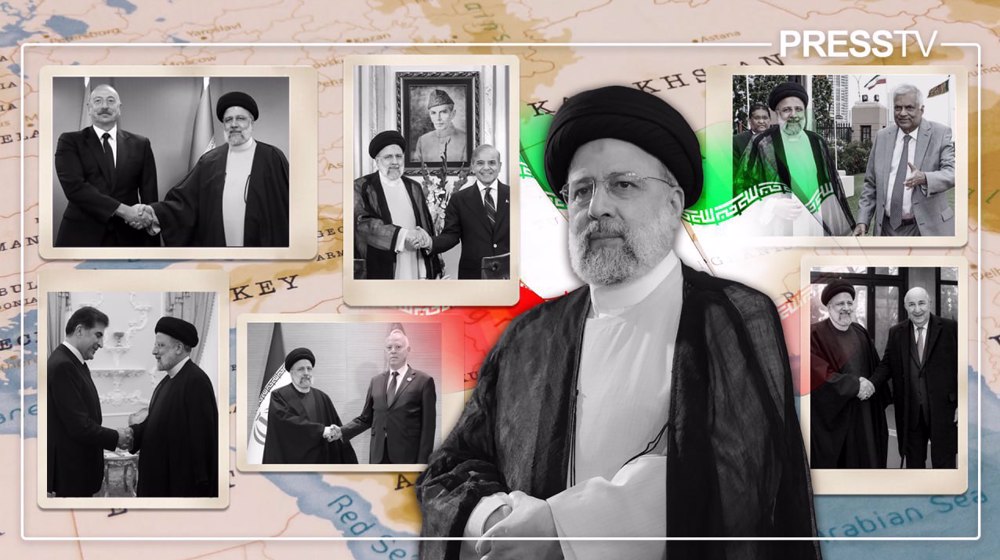
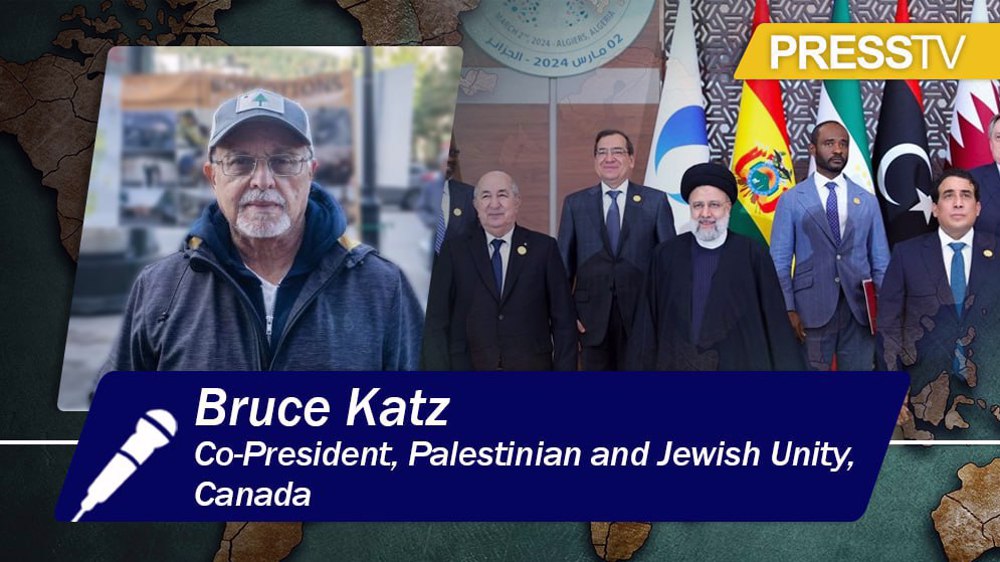
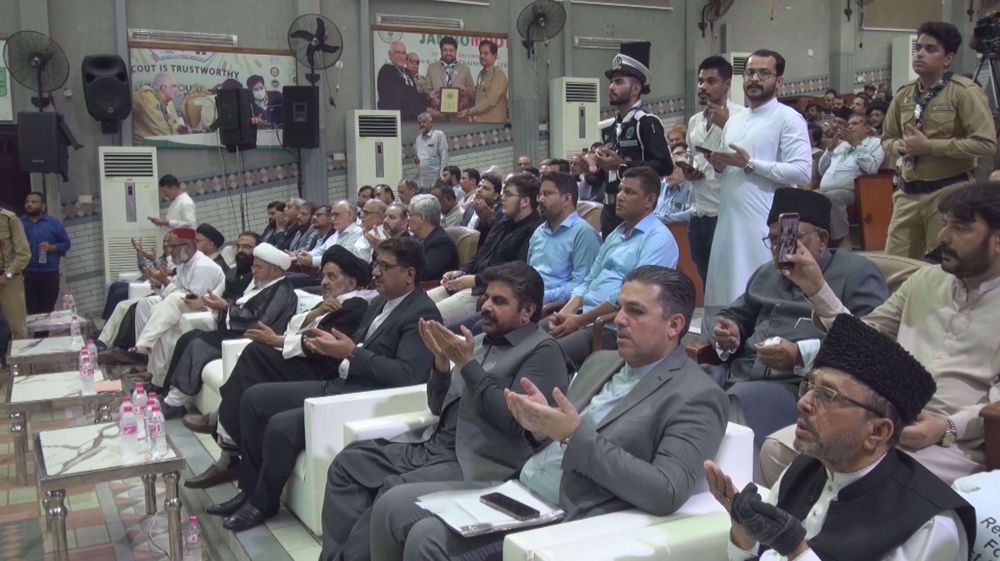
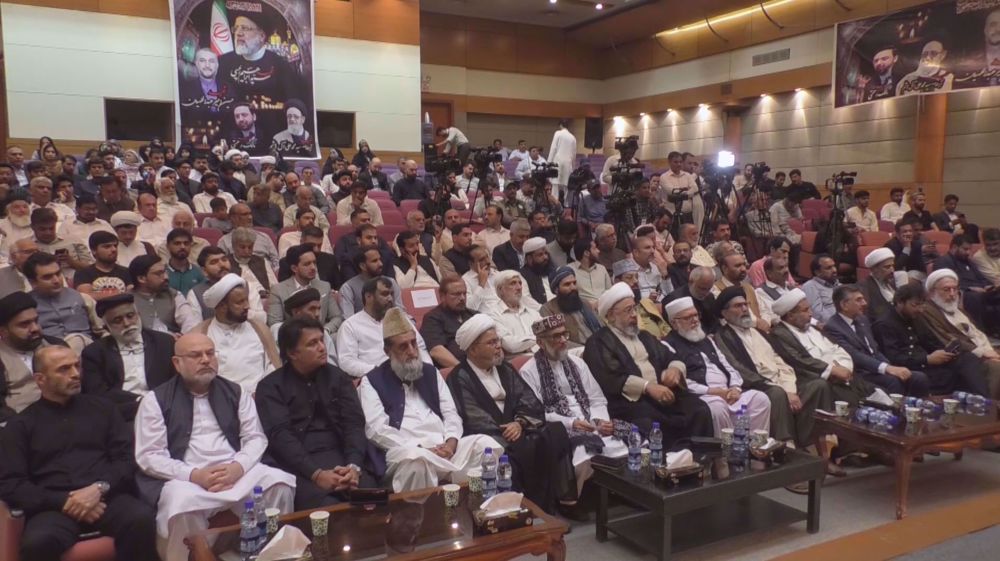



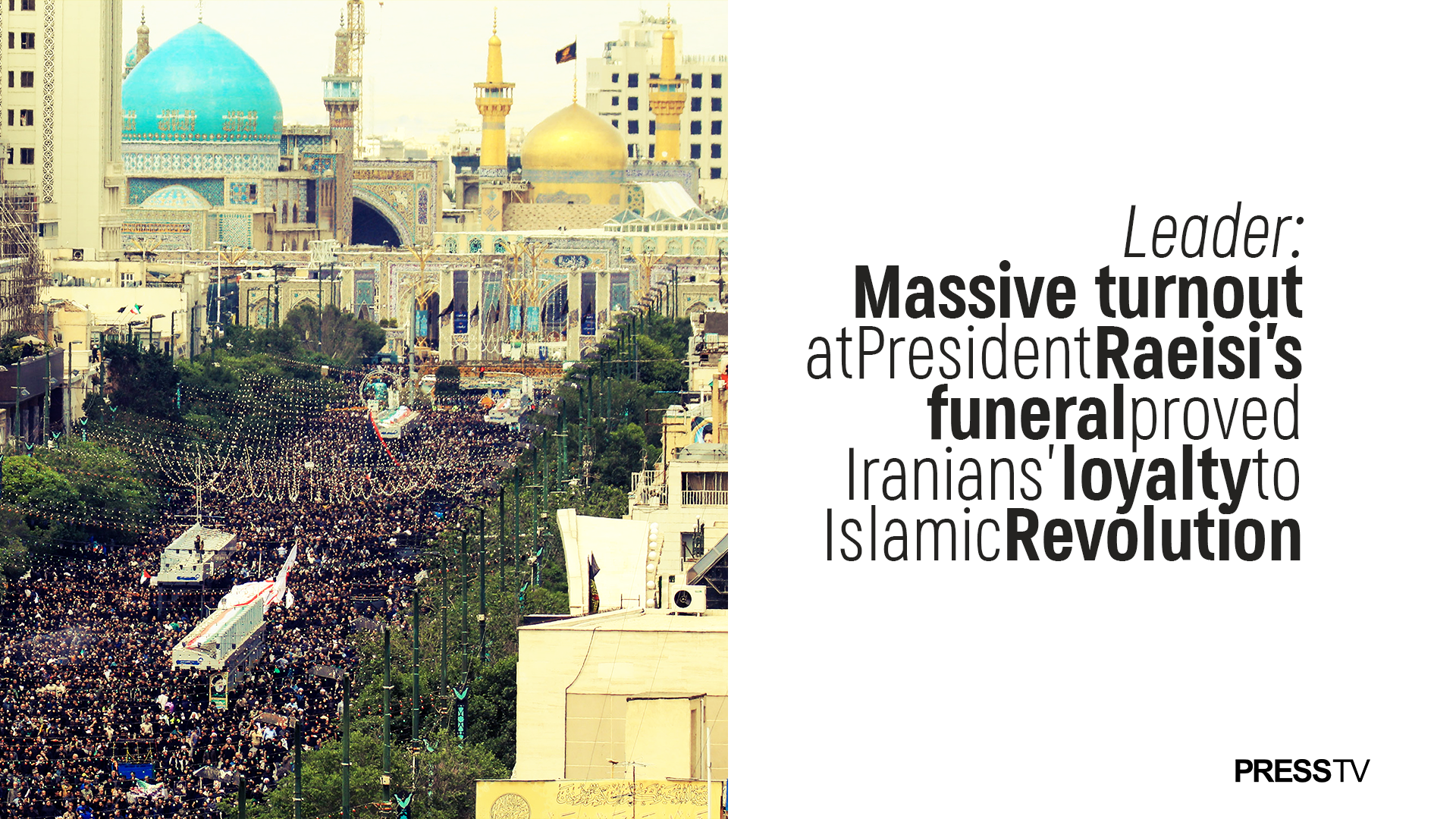
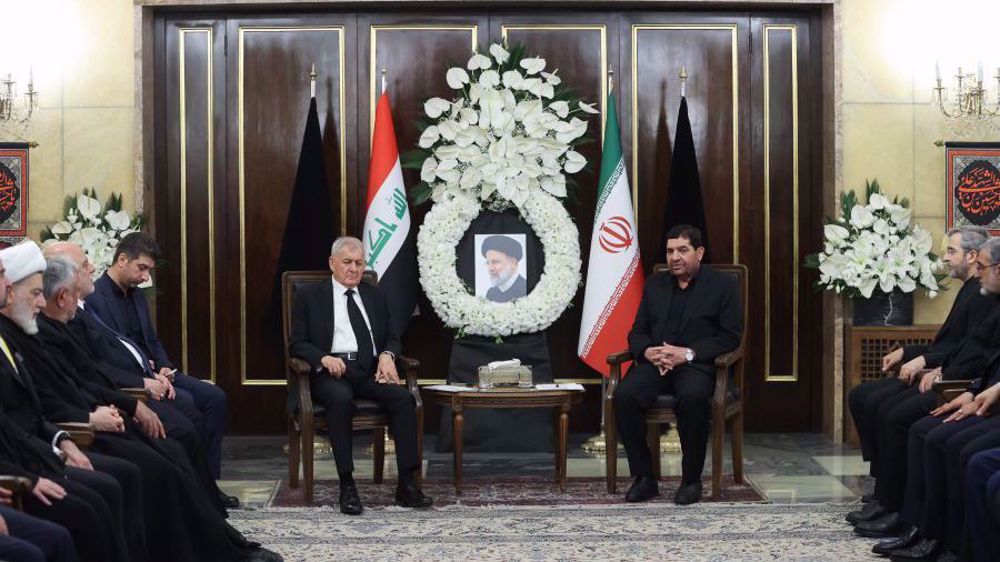

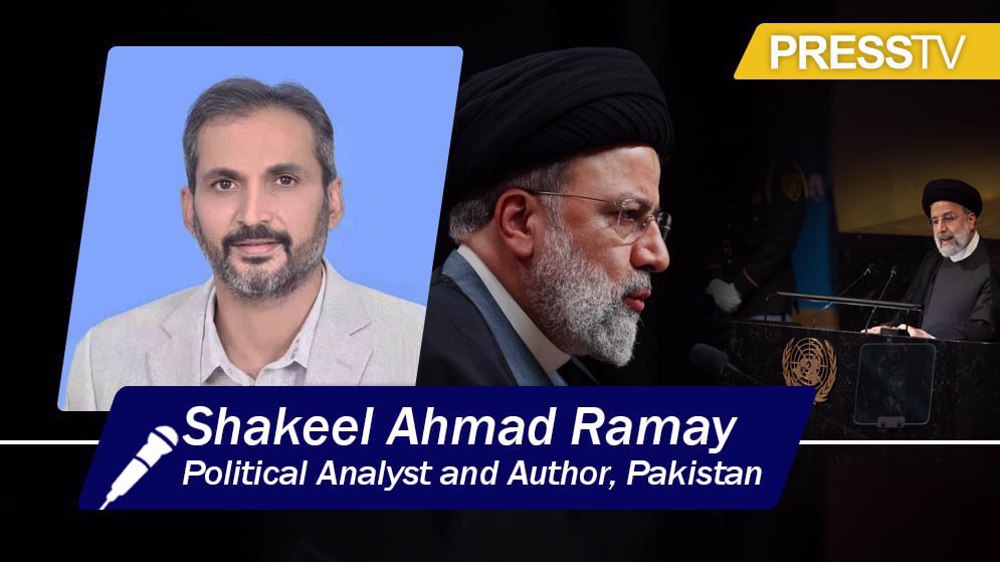
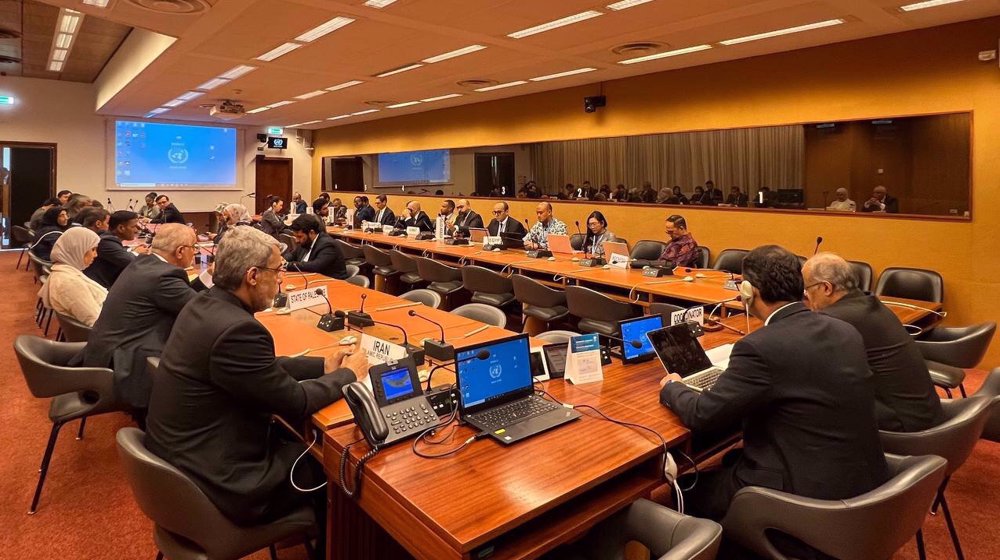

 This makes it easy to access the Press TV website
This makes it easy to access the Press TV website